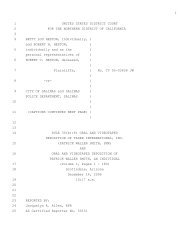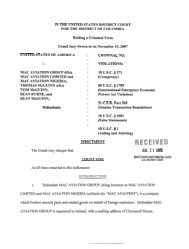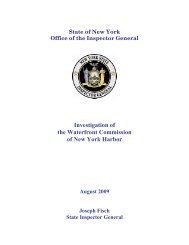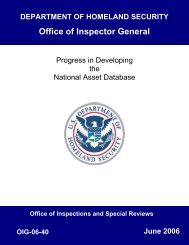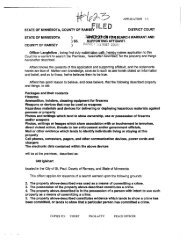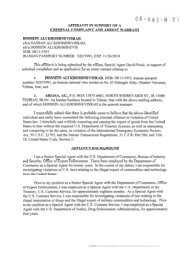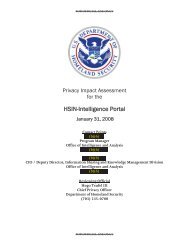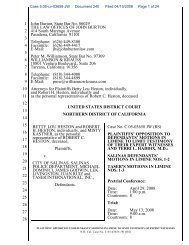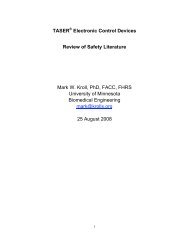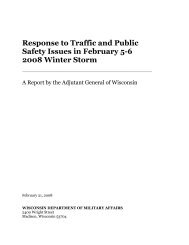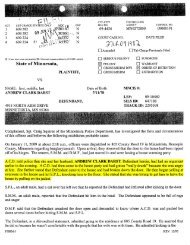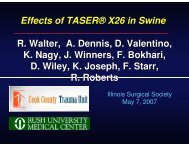04-473 - Garcetti v. Ceballos - Supreme Court of the United States
04-473 - Garcetti v. Ceballos - Supreme Court of the United States
04-473 - Garcetti v. Ceballos - Supreme Court of the United States
You also want an ePaper? Increase the reach of your titles
YUMPU automatically turns print PDFs into web optimized ePapers that Google loves.
Cite as: 547 U. S. ____ (2006)9Opinion <strong>of</strong> <strong>the</strong> <strong>Court</strong>views inside his <strong>of</strong>fice, ra<strong>the</strong>r than publicly, is not dispositive.Employees in some cases may receive First Amendmentprotection for expressions made at work. See, e.g.,Givhan v. Western Line Consol. School Dist., 439 U. S.410, 414 (1979). Many citizens do much <strong>of</strong> <strong>the</strong>ir talkinginside <strong>the</strong>ir respective workplaces, and it would not serve<strong>the</strong> goal <strong>of</strong> treating public employees like “any member <strong>of</strong><strong>the</strong> general public,” Pickering, 391 U. S., at 573, to holdthat all speech within <strong>the</strong> <strong>of</strong>fice is automatically exposedto restriction.The memo concerned <strong>the</strong> subject matter <strong>of</strong> <strong>Ceballos</strong>’ employment,but this, too, is nondispositive. The First Amendmentprotects some expressions related to <strong>the</strong> speaker’s job.See, e.g., ibid.; Givhan, supra, at 414. As <strong>the</strong> <strong>Court</strong> noted inPickering: “Teachers are, as a class, <strong>the</strong> members <strong>of</strong> a communitymost likely to have informed and definite opinions asto how funds allotted to <strong>the</strong> operation <strong>of</strong> <strong>the</strong> schools shouldbe spent. Accordingly, it is essential that <strong>the</strong>y be able tospeak out freely on such questions without fear <strong>of</strong> retaliatorydismissal.” 391 U. S., at 572. The same is true <strong>of</strong> manyo<strong>the</strong>r categories <strong>of</strong> public employees.The controlling factor in <strong>Ceballos</strong>’ case is that his expressionswere made pursuant to his duties as a calendardeputy. See Brief for Respondent 4 (“<strong>Ceballos</strong> does notdispute that he prepared <strong>the</strong> memorandum ‘pursuant tohis duties as a prosecutor’”). That consideration—<strong>the</strong> factthat <strong>Ceballos</strong> spoke as a prosecutor fulfilling a responsibilityto advise his supervisor about how best to proceed witha pending case—distinguishes <strong>Ceballos</strong>’ case from those inwhich <strong>the</strong> First Amendment provides protection againstdiscipline. We hold that when public employees makestatements pursuant to <strong>the</strong>ir <strong>of</strong>ficial duties, <strong>the</strong> employeesare not speaking as citizens for First Amendment purposes,and <strong>the</strong> Constitution does not insulate <strong>the</strong>ir communicationsfrom employer discipline.<strong>Ceballos</strong> wrote his disposition memo because that is



